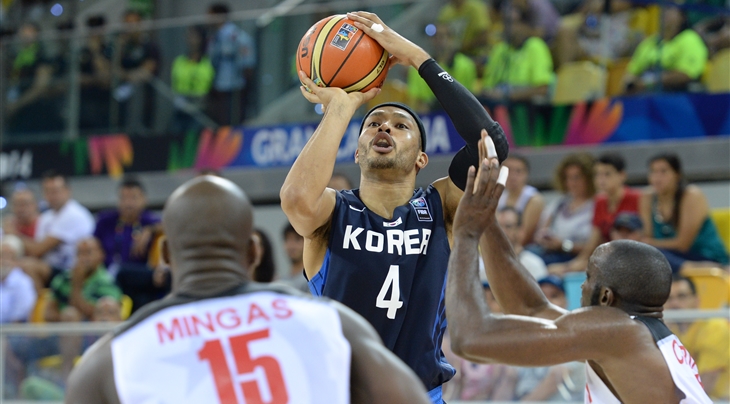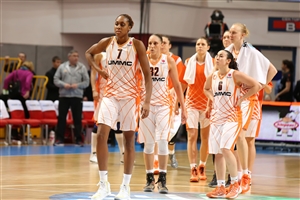
Why not look at naturalisation from 'local' players!
KUALA LUMPUR (Mageshwaran's AsiaScope) - There are two things that have become almost inevitable in FIBA Asia.
Firstly, in the domestic leagues, the success of clubs is becoming more and more dependent on the import players they field. Secondly, in the formation of the national team, the clamoring debate invariably revolves around the player they would naturalise.
Can these two be connected and be mutually beneficial?
Iran and China are the only two countries in FIBA Asia that have never and may never look at naturalising a player. There's enough depth in talent in both programs in all areas. We keep them out of this.
For them, to use the foreign players only where and when it matters without eating into the minutes of the local players is important.
Korea, another traditional superpower, already follows the method of looking for a naturalised player within its own domestic league.
In fact, Korea have added a completely new dimension to this concept by naturalising all eligible players and fielding them in their very own KBL. The naturalised players therefore, in a manner of speaking, are already in a pool playing the domestic league. The selection of the naturalised player becomes the same as picking a local player.
Eric Sandrin, who played as Lee Seung-Jun at the 27th FIBA Asia Championship in Manila, Philippines in 2013, and Jarod Stevenson who played as Moon Tae-Jong at the 2014 FIBA Basketball World Cup in Spain and subsequently at the 2014 Asian Games in Incheon, Korea last month are examples for this method.
Lebanon and Qatar are two countries that have dabbled in this method but not with any concrete plan. So have Kazakhstan in using the services of 'Triple J' Jerry Johnson.
Boney Watson has been a Qatari citizen for almost two seasons now and even been playing in the QBF competitions, but for reasons known only to the coaches when it came to choosing the naturalised players for national teams the choice was Trey Johnson at the 4th FIBA Asia Cup in Tokyo (Japan) in 2012 - and Jarvis Hayes at the 27th FIBA Asia Championship.
Lebanon, I hope, will use Loren Woods who was the leading naturalisation candidate before the National Federation was suspended. We'll know their plan come February when the Cedars compete at the WABA Championship and aim to clinch one of the two spots available for the 28th FIBA Asia Championship.
It leaves us with the Philippines and Jordan, the finalists of the past two FIBA Asia Championships to talk about where things look yet fluid.
Jordan, in fact, have begun to think along these lines with the clubs told to look at the probable naturalisation candidates when they select their import players for the upcoming season. At least that's the message from Fadi Sabbah, who is taking over as the chief coordinator of the Al Nashama.
The Philippines did create a sensation with the naturalisation player issue - first when Andray Blatche was refused permission to don the Filipino colors under a unimaginative OCA regulation and then when things got a little unsavory when Chot Reyes spoke about Marcus Douthit's commitment during the Asian Games.
It wasn't about who was right and who was wrong, but the whole episode of a coach and a leading player - not doubting the commitment of either to the team's cause - at loggerheads certainly didn't make good headlines.
This, as you see, is an open debate. No conclusions are drawn, but I'm just raising some relevant questions. The ball is in the court of national team programs and how well they coordinate with that of the clubs.
So long…
S Mageshwaran
FIBA Asia
FIBA's columnists write on a wide range of topics relating to basketball that are of interest to them. The opinions they express are their own and in no way reflect those of FIBA.
FIBA takes no responsibility and gives no guarantees, warranties or representations, implied or otherwise, for the content or accuracy of the content and opinion expressed in the above article.

















